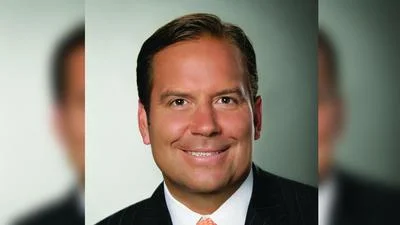Gov. J.B. Pritzker | File Photo
Gov. J.B. Pritzker | File Photo
Gov. J.B. Pritzker is selling the proposed elimination of the state’s flat-rate income tax as a way of making the wealthier shoulder a greater share of the tax burden. He has branded the replacement tax, a graduated income tax, as “The Fair Tax.” There’s a lot more to it than that, according to a recent analysis by the Tax Foundation, which suggests fairness has little do with it.
Often overlooked in the higher-rates-for-higher-incomes discussion is legislation approved by the General Assembly last spring to increase tax rates on business, big and small, on Jan. 1, 2021, if voters approve the graduated tax on Nov. 3.
Under the changes, the effective top tax rate top rate on many small businesses, the "pass-through businesses" – partnerships, S corporations, and trusts – would be 9.49%, the sixth highest in the nation. The new corporate income tax rate would be 10.49%, the nation’s second highest.
“While not all pass-through businesses are small businesses, it’s worth noting that small businesses are responsible for 45.1% of Illinois employment,” the Tax Foundation analysis said. “In a state already suffering from an outmigration of businesses and high earners, a tax increase of this size could do real damage.”
The proposed changes in taxes under the legislation includes a recapture provision, meaning that filers with incomes in the top bracket will have their entire income, not just their marginal income, subject to proposed top tax rate of 7.99%.
For example, the analysis noted that under the proposed changes the first $10,000 in taxable income would be taxed at a rate of 4.75% (this lowest level rate only slight lower than the current rate of 4.95%), and someone earning $11,000 would only pay the higher rate of 4.9% on the additional $1,000, not the entire $11,000. But once income reaches $750,000 (single filers) or $1 million (joint filers), that taxpayer’s entire income would be taxed at the proposed 7.99% rate.
The proposed changes would also create a marriage penalty, as married couples filing jointly would pay more than if they filed separately. Most states structure their tax codes to avoid such a penalty
Overall, the tax changes would drop Illinois to near the bottom in a ranking of competitive tax structures, ahead of only the notoriously high tax states of California, New York and New Jersey. This while its neighboring states, competitors for businesses and talent, are moving in the opposite direction. Indiana, Missouri, Kentucky and Iowa have either recently reduced personal and business tax rates, or are on track to reduce them.
Pritzker dismisses the possibility.
“Now, there are those who want to scare people by claiming that this proposal will cause residents and businesses to flee Illinois,” Pritzker said at a March 2019 news conference. “They couldn’t be more wrong. They ignore the fact that people and businesses are fleeing our state now under our current regressive tax system, yet states with fair tax systems on average grow faster and create more jobs than Illinois.”
The Tax Foundation called the governor’s remarks a “curious statement.”
“Individuals and businesses are already fleeing Illinois. Higher taxes aren’t going to turn things around, especially if the tax increase does nothing to address Illinois’ unpaid bills, pension debt, or other fiscal challenges,” the Tax Foundation analysis claims.






 Alerts Sign-up
Alerts Sign-up